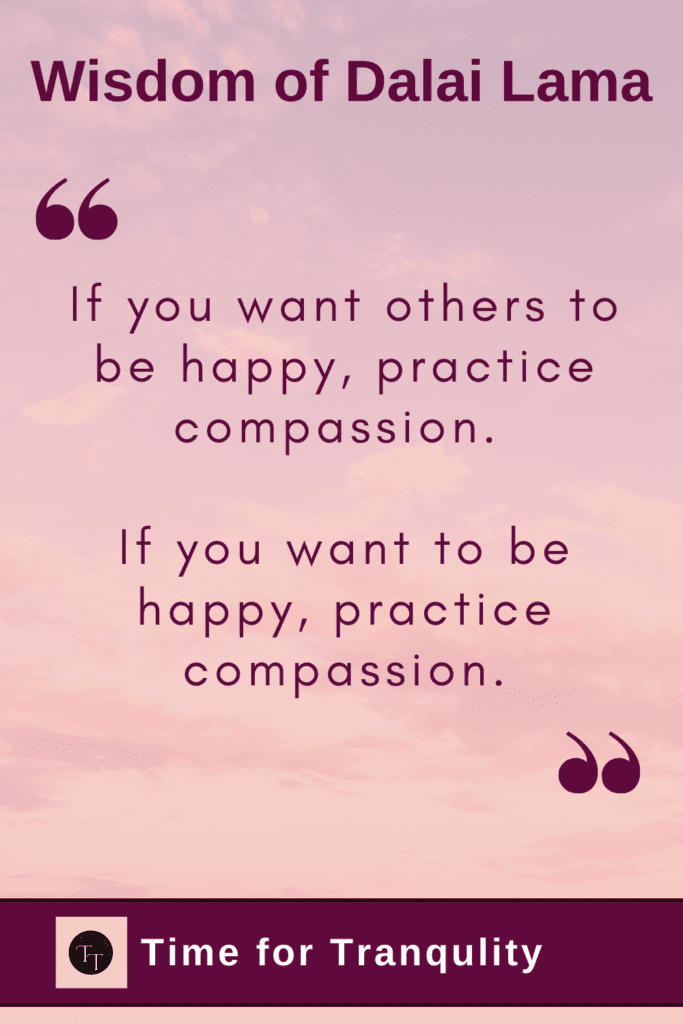5 Benefits of Mantra Meditation for Graceful Aging!
Do you believe that meditation practice may be too difficult at your age? I admit some are difficult. But, check out the benefits of mantra meditation before you give up even before starting.
Stress and anxiety are a burden we all have to bear. Age, retirement, and living alone, are some of the many factors that further increase the anxiety of an uncertain future. The burden just gets heavier as we grow older.
But do not despair. Mindfulness and meditation can reduce stress and anxiety, letting you age with grace, dignity, and peace of mind.
All meditation techniques attempt to bring your mind to be present in the moment and observe your thoughts and emotions without judgment. To achieve this they need an anchor. Vipassana uses the sensation of breath in your nostrils, and Walking meditation uses the sensation of your feet touching the earth at every step.
Mantra meditation is a gentle practice to ease negative feelings. With each repetition of your chosen mantra, your heart softens, and your mind becomes calmer, giving you peace and tranquility.
The most important benefit of mantra meditation is that it’s simple and accessible to everyone. You can practice it, irrespective of your faith or spiritual leanings. The steady rhythm of a mantra is so soothing and relaxing. You will find a deeper sense of balance and fulfillment as you continue your journey of self-discovery.
What is Mantra Meditation?
Mantra meditation, a practice rooted in ancient spiritual traditions of Hinduism and Buddhism, uses a mantra as an anchor. It involves repeating a word or phrase—called a mantra (or could be an affirmation)—either out loud or in your mind.
A Mantra is a powerful word or phrase that may or may not have meaning in the same way a sentence does. Repeating the mantra helps one to transcend the lower states of mind and attain higher spiritual consciousness. – Swami Sivananda (Hindu spiritual teacher)
As you chant or listen to your mantra, you begin to relax, your mind settles, and you feel more centered. Mantra meditation becomes a way to tap into a deep well of peace and calm, especially during difficult times.
Sacred vs Secular Mantras
A common misconception is that mantras are always religious. It is true that mantra meditation, which has roots in Hinduism or Buddhism, uses religious mantras. They typically pay homage to a deity or God. In that sense, mantras are sacred, tied to spiritual traditions.
But they don’t have to be. A mantra is a word, phrase, or a short sentence that may or may not even have any meaning. It could be a personal affirmation, that holds meaning to you. It may even be a meaningless word or just a phonetic sound.
A sacred mantra might connect you to something divine, like the sound “Om.” A secular mantra, on the other hand, can be as simple as repeating words like “peace” or “calm.” You can choose what feels right based on your beliefs and needs.
The great thing about mantra meditation is its flexibility. It can be adapted to fit any lifestyle or belief system. You don’t have to follow any specific religion or tradition to benefit from it. The key is finding a mantra that resonates with you, helps you feel grounded, and guides you to a place of inner tranquility.
Benefits of Mantra Meditation for Senior Women
5 benefits of mantra meditation can help senior women live a more peaceful and balanced life. Repeating a mantra calms the mind, soothes emotions, and nurtures the spirit.
Mantra meditation is a gentle path to emotional well-being and spiritual connection, which becomes even more important as we age.
1. Stress Reduction
The repetitive nature of chanting a mantra has a calming effect on the mind. As you repeat your mantra, your breathing slows down, and your body relaxes. This helps reduce the stress hormones in your system, making you feel more at peace.
The gentle rhythm of the mantra helps your mind let go of worries, allowing you to relax deeply and find tranquility.
For a meditative experience, bring your awareness to the repetitive sound of the mantra and observe your thoughts and emotions without judgment.
2. Emotional Healing
Mantra meditation also helps with emotional healing. Your focus on the mantra creates space for you to observe your emotions without being overwhelmed.
Over time, this practice can help you build emotional resilience, bringing balance to your life.
Mantra meditation and the repetitive chanting of the mantra give your mind space to let it process emotions with greater compassion. Developing compassion is a requisite for emotional healing.

3. Improved Sleep
Mantra meditation can help calm the mind and reduce anxiety, which are often the culprits behind restless nights. Regular practice helps quiet the thoughts that might keep you awake, allowing your body to relax deeply.
Soothing, repetitive sound vibrations, are known to, lull your mind, making it easier to fall asleep.
Mantra meditation also improves the quality of your sleep, which is essential for overall health and energy, especially as you age. Better sleep leads to feeling more rested and vibrant throughout the day.
While not traditional mantras, the repetitive sound of the Tibetan Singing Bowls has a mantra-like quality.
I find listening to “OM” Chanting with Tibetan Singing Bowls very effective, whenever I have difficulty falling asleep. Try it, if you like.
4. Spiritual Growth
If you want to embark on a spiritual journey, then mantra meditation is a good starting point. I know, because it has been for me. I do not use mantra meditation regularly, as I prefer Vipassana Meditation. But, had it not been for mantra meditation, I would have probably given up on my self-discovery long ago.
Repeating a sacred mantra allows you to connect with the divine, whatever that may mean to you. It nurtures a sense of peace and oneness with the universe, helping you feel more connected to something greater than yourself. This spiritual connection can bring a profound sense of purpose and fulfillment.
For example, while chanting the seed mantra “Om” or “Aum” has roots in Hinduism, the sound is cosmic, rather than religious.
Om or aum (pronounced ah-uu-mm) is a sacred sound considered by many ancient philosophical texts to be the sound of the universe, encompassing all other sounds within it. – MasterClass
5. Cognitive Clarity
Regular mantra meditation can sharpen your focus and enhance mental clarity. By training the mind to concentrate on a single sound or word, mantra meditation helps improve cognitive function and memory.
As such, mantra meditation is especially beneficial for seniors, helping them to maintain mental sharpness and preventing the mind from feeling scattered or foggy. You can stay present and engaged with a clearer, more focused mind.
How to Choose Your Mantra?
Choosing a mantra is a personal decision and should reflect what resonates most deeply with you.
A spiritual mantra, like “Om,” connects you to ancient traditions and a sense of universal energy. A personal mantra, like “I am at peace,” focuses on what you want to cultivate and manifest.
The key is to choose a mantra that feels comforting and aligns with your personal goals, whether spiritual, emotional, or mental. However, it is important to keep it phonetically pleasing, even inspirational!
Here are five examples of spiritual mantras from different ancient traditions and five personal mantras designed to help meet various goals:
5 Examples of Spiritual Mantras
- Om (Hinduism)
Often considered the sound of the universe, “Om” is a sacred syllable that signifies the essence of ultimate reality or consciousness. It is believed to connect the practitioner with the divine and the cosmic energy. - Om Mani Padme Hum (Buddhism)
This powerful Buddhist mantra is associated with compassion and the bodhisattva of compassion, Avalokiteshvara. It translates roughly to “The jewel is in the lotus” and is used to cultivate compassion and benevolence. - Namu Myoho Renge Kyo (Nichiren Buddhism)
This chant is part of the Lotus Sutra in Nichiren Buddhism and represents devotion to the mystic law of the universe. It brings about personal transformation and awakening to one’s own Buddha nature. - Gate Gate Paragate Parasamgate Bodhi Svaha (Mahayana Buddhism)
Known as the Heart Sutra mantra, it means “Gone, gone, gone beyond, gone altogether beyond, O what an awakening, all hail!” It is a mantra of enlightenment, helping one transcend ordinary perception and attain higher awareness. - Shalom (Judaism)
While commonly known as a greeting meaning “peace,” “Shalom” can also be used as a mantra for cultivating a sense of peace and wholeness. It helps the practitioner center their mind on inner peace and harmony.
5 Examples of Personal Mantras
- I Am Calm and Peaceful
This personal mantra is perfect for reducing anxiety and bringing a sense of calm during stressful times. It focuses on creating an inner environment of tranquility. - I Am Strong and Resilient
Use this mantra to build emotional strength and resilience, especially when facing life’s challenges. It reinforces a sense of personal power and perseverance. - I Let Go of What I Cannot Control
This mantra is ideal for those seeking to release worries or anxieties about things beyond their control, helping to cultivate acceptance and peace. - I Am Worthy of Love and Joy
Designed to boost self-esteem and invite more love into your life, this mantra helps you recognize your inherent worth and deserving of happiness. - Every Day, I Grow and Heal
This mantra fosters personal growth and healing. A useful mantra if you are working through past trauma or striving for self-improvement and emotional healing.
In Conclusion
Mantra meditation offers a simple yet profound way to bring peace and healing into your life.
The benefits of mantra meditation are immense, whether you seek stress relief, emotional balance, or spiritual growth, especially for senior women.
A mantra may be spiritual or personal, it does not matter. Always choose a mantra that resonates with you.
Mantra meditation can open the door to greater tranquility and clarity, helping you age with grace and inner peace.
Let the sound of your mantra guide you to a place of serenity, where the mind quiets, and the heart finds its natural rhythm of peace and joy.






